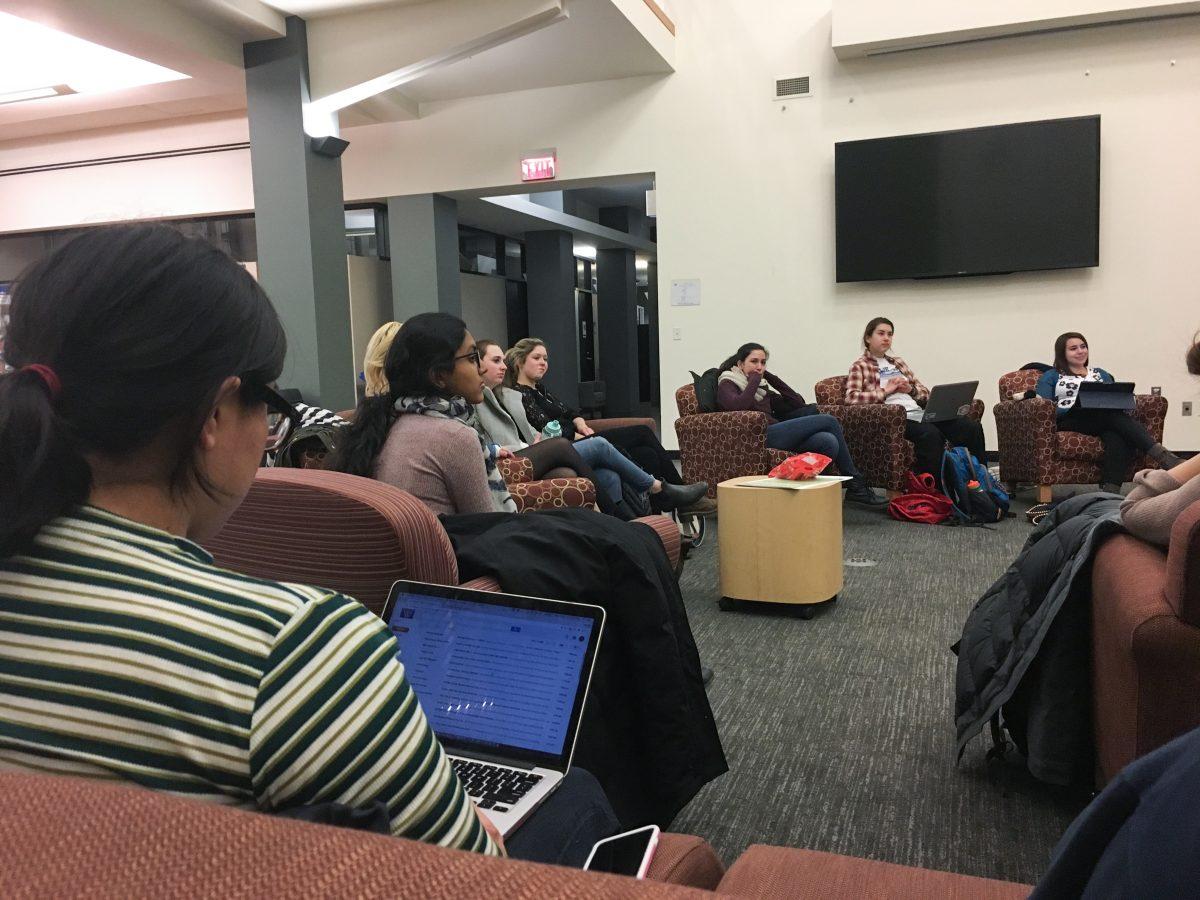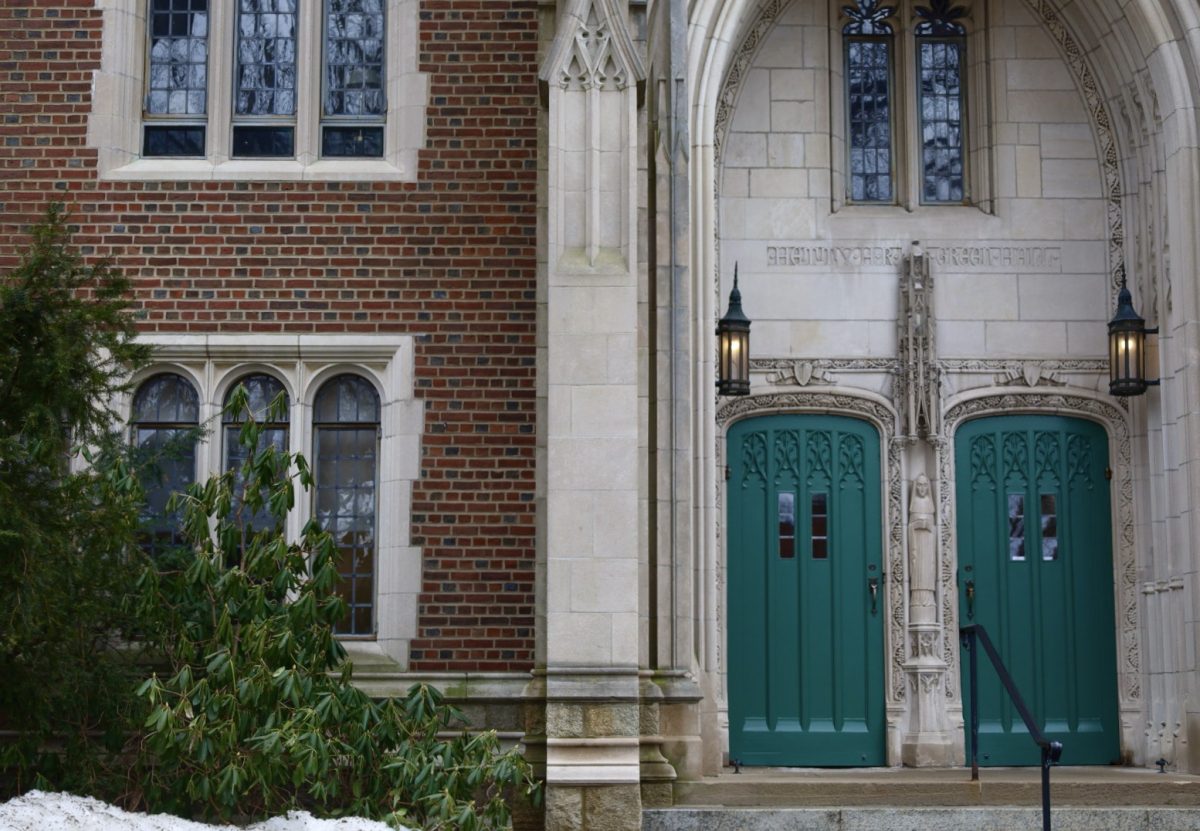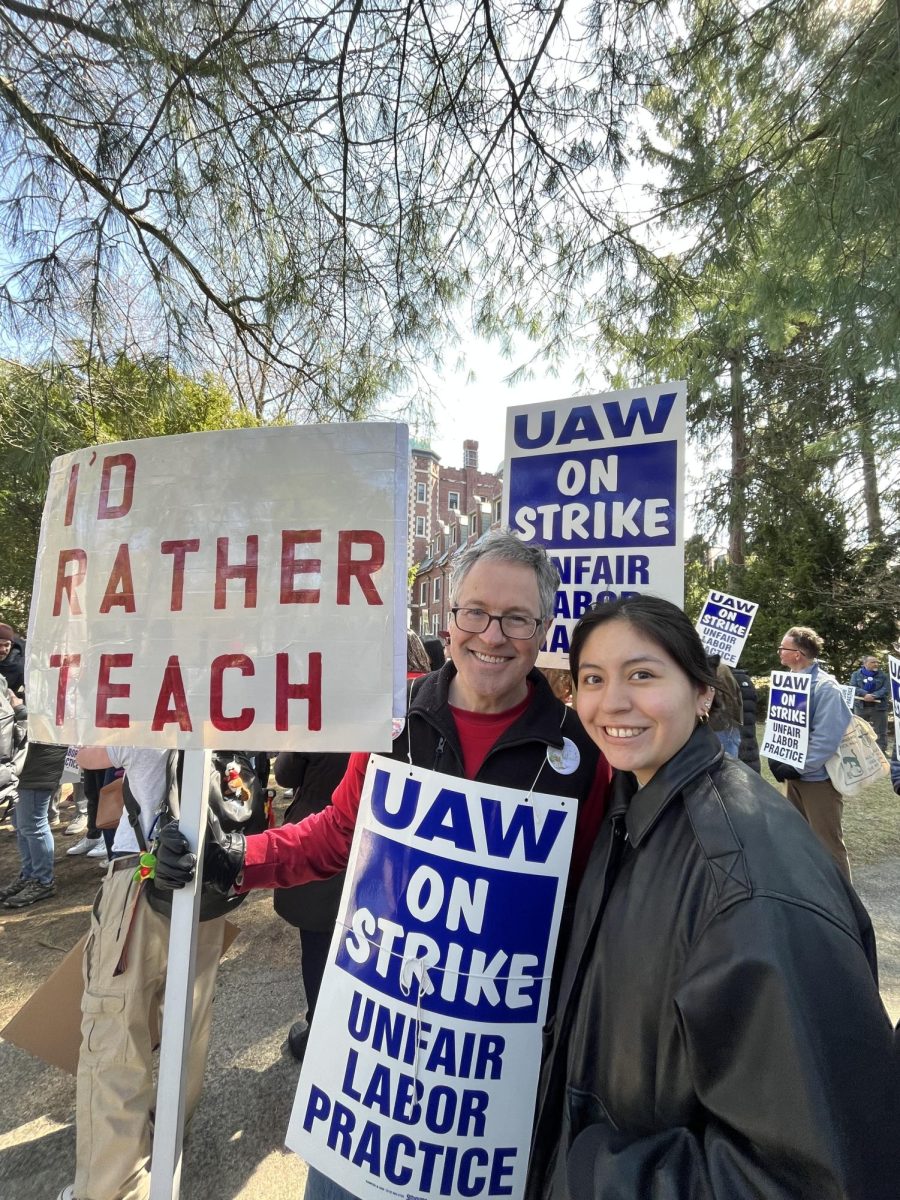The 2016 Presidential election was a difficult one for many Wellesley students for a variety of reasons, but since the election, there has been a rise in the numbers of students participating in political activities.
Wellesley Students for Hillary (WSFH) has already begun planning what its next steps will be. Although the organization was disbanded after the election, former Vice President Karen Su ’19 says that its members are still looking toward the future and hope to create a new organization focused on political activism.
“The goal of this new organization moving forward is to provide a non-partisan forum for individuals on campus who want to become more politically engaged. This is going to operate as a group that crowdsources projects, collaborations, ideas, etc. Its mission is to provide an outlet for those who don’t know where to start, to get involved in a friendly way. […] We currently do not have a solid plan for the future but we are opened to collaboration with other student organizations on campus as well as organizations off campus,” she said.
However, Su also stressed that the new organization will be more inclusive and unifying than the previous organization.
“Instead of focusing on a singular candidate and singular political party, we are going to be focusing on rallying around the central theme of advocating for social justice issues. The goal remains as fighting for unity and for a more inclusive society regardless of race, ethnicity, gender, sexual orientation, religion, etc. However, the election has left our political parties fractured, so it is important to provide a space for those who are currently trying to get involved in political activism without feeling pressured to stick to a label,” she said.
Other student groups have also tapped into the activist spirit on campus, such as Wellesley Alternative Breaks Atlanta, a Wintersession program in which students work with International Rescue Committee and the Lutheran Services of Georgia to serve refugees. This group organized a Call Your Rep event on Thursday, Feb. 2 from 9 a.m. to 6 p.m.
According to Sydney Stento ’18, they planned the event while on the Wintersession trip. She said she is proud of its success.
“We would have called the event ‘successful’ if we influenced one student to call their congressperson. With that said, I would say that we influenced a lot more than just one. […] We’d love to expand this idea into a more frequent event for different issues. Stay tuned,” she said.
In addition, a group of students has organized activism training on campus. Julia Leslie ’19, Emma Brewer-Wallin ’18 and Emerson Goldstein ’18 planned the training for this year, which began in the fall. They, along with five other students, were trained by Dean of Religious and Spiritual Life Tiffany Steinwert and Catholic Chaplin Emily Jendzejec. The training is currently run by those eight students.
“I got involved because I want to help other students organize on campus, and the community organizing model we learned and train others with provides a good framework for building a campaign,” Leslie said.
Yet Leslie stressed that this training is important for the campus as a whole, not just these eight students, because of the important skills that it teaches.
“The purpose of the training is to increase community organizing on campus, to make it more visible, and to connect communities here that want to organize. […] The training is important because it teaches strategizing, building relationships, teambuilding, and telling your own story. It gives us the skills to think of a problem and then be able to mobilize ourselves and other people to change it,” she said.
In addition to student groups and campus-wide movements, students are remaining active through social media platforms. Some students, including Erin Wright ’17, believe that social media should be an integral part of current activist movements because it allows people to access specific information quickly and to communicate with people they would not otherwise be able to.
“With social media I have the opportunity to see in both high places and low places at the same time. In addition to reading about the #noDAPL protests in The New York Times, I can and should be reading the Twitter feeds of water protectors who are on the ground at Sacred Stone Camp,” Wright said.
Wright is especially impressed with how, now perhaps more than ever, social media has the ability to create national or global movements.
“The Women’s March on Washington started as an event page on Facebook. It was created the night after the election by a woman in Hawaii named Teresa Shook and when she woke up the next morning, thousands of people were ‘going’ to the event. That event page turned into millions of people marching on all seven continents. That’s the kind of power that can be harnessed now via social media,” she said.
This is not in any way a comprehensive list of what is currently occurring on Wellesley’s campus. Many other clubs, movements and individual students are involved, each in their own way, in the activist movement. Each has their own agenda they hope to advance during a time of global unpredictability and violence.
However, with so much happening on campus and in the world, Wright emphasized an additional, crucial role that social media can play: allowing people to connect with and help one another.
“The best thing that I see happening on social media right now is how people are supporting each other and encouraging each other to get involved in working for social justice. My hope is that social media helps us to take care of each other and to motivate each other to keep resisting the Trump administration for as long as he’s in office,” she said.






